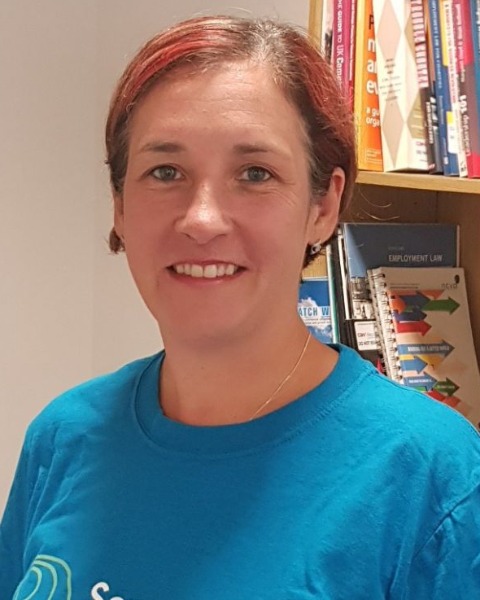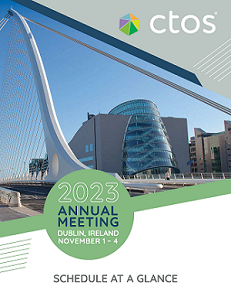Improving Sarcoma Care Globally: Access, Equity, Advocacy and Policy
(P 127) TRENDS IN CONTACTS TO THE SARCOMA UK SUPPORT LINE
Location: The Liffey, Level 1

Helen F. Stradling, BNurs (Hons), MSc (she/her/hers)
Sarcoma Specialist Nurse
Sarcoma UK
London, England, United Kingdom
Author(s)
Objective: The Sarcoma UK Support Line (SL) was opened in February 2016 with the aim of offering free, confidential advice and support for anyone affected by sarcoma. The team consists of sarcoma nurses and advisors with experience of sarcoma which ensures that people accessing the team receive up to date and clinically relevant information. Since opening the team have seen a consistent increase in the number of contacts, a contact being an interaction via telephone, email, text or social media, but have the trends and reasons for contact remained the same over the last seven years?
Methods: The SL team record all contacts on a secure database and an annual audit is undertaken in which numbers are compared year on year. This allows the team to notice trends and changes as well as show the real impact of the SL. In 2020 the SL team started a 'direct referrals' service with the Swansea clinical team, whereby the Swansea team email the SL once a diagnosis has been made and with consent they share the persons contact details. The SL team then make contact with the individual and offer their support. This process not only allows the SL team quicker and more direct access to people affected by sarcoma, but also removes some of the 'support' pressure on the clinical teams. This service has now been expanded and is available to 7 clinical teams. In January 2023 the SL expanded and started to have two members of the team on the line each day, allowing more calls to be answered at the first time of trying and less people needing to leave voicemails for the team.
Results: Since the opening of the SL the team have had over 19,000 contacts with more than 4,000 individuals. The 2022/23 year saw an increase in contacts - 4622, compared to the 2016/17 year of opening of 947, an increase of over 380%. The number of contacts relating to palliative treatments increased significantly in the summer of 2020, with the country going into lockdown, and the need to cease palliative chemotherapy for all due to the pandemic was difficult for all concerned. That same year the team had increased contacts regarding the changes to follow up, postponed scans, how the lockdown would affect people and their care as well as an increase in contact from worried family and friends. The team have seen a trend of the top 3 reasons for people making contact as being support, treatment and diagnosis up until the 2022/23 year in which the contacts in the the pre-diagnosis stage overtook those at the diagnosis stage and became the 3rd most popular reason for people making contact. Email continues to be the method of contact of choice, however, the 2022/23 year has seen an increase in the amount of time the team have spend on the telephone, with an increase on the previous year of 64% with 450.65 hours and an average call time of 23 minutes. This year has also seen an increase in the number of contacts at the referral stage, with the team needing to move away from the directing people to advocate for themselves, into a more direct contacting of the clinical teams on peoples behalf to ensure referrals were being made and being received by the appropriate teams. The team have spent an increasing amount time over the last 3 years to give people the words to use when trying to access health care services to ensure any worrying symptoms are not ignored, this was not so much of an issue prior to 2020 and the COVID pandemic.
Conclusion: The Sarcoma UK SL is available for anyone affected by sarcoma and strive to be in contact with as many people as possible at the earliest opportunity. The team are a beacon in hearing how things really are for people and are able to escalate issues not only within Sarcoma UK, but nationally with NHSE, and other charity collaborations. The team aim to increase the direct referral scheme and hope to open this to 10 clinical teams by the end of the 2023/24 year to allow us to increase our reach. The teams links with the clinical sarcoma community cannot be underestimated and in a time of intense pressure within the NHS the SL team are able to offer an extra support to people affected by sarcoma and time, which is hard for our clinical colleagues to find.
Methods: The SL team record all contacts on a secure database and an annual audit is undertaken in which numbers are compared year on year. This allows the team to notice trends and changes as well as show the real impact of the SL. In 2020 the SL team started a 'direct referrals' service with the Swansea clinical team, whereby the Swansea team email the SL once a diagnosis has been made and with consent they share the persons contact details. The SL team then make contact with the individual and offer their support. This process not only allows the SL team quicker and more direct access to people affected by sarcoma, but also removes some of the 'support' pressure on the clinical teams. This service has now been expanded and is available to 7 clinical teams. In January 2023 the SL expanded and started to have two members of the team on the line each day, allowing more calls to be answered at the first time of trying and less people needing to leave voicemails for the team.
Results: Since the opening of the SL the team have had over 19,000 contacts with more than 4,000 individuals. The 2022/23 year saw an increase in contacts - 4622, compared to the 2016/17 year of opening of 947, an increase of over 380%. The number of contacts relating to palliative treatments increased significantly in the summer of 2020, with the country going into lockdown, and the need to cease palliative chemotherapy for all due to the pandemic was difficult for all concerned. That same year the team had increased contacts regarding the changes to follow up, postponed scans, how the lockdown would affect people and their care as well as an increase in contact from worried family and friends. The team have seen a trend of the top 3 reasons for people making contact as being support, treatment and diagnosis up until the 2022/23 year in which the contacts in the the pre-diagnosis stage overtook those at the diagnosis stage and became the 3rd most popular reason for people making contact. Email continues to be the method of contact of choice, however, the 2022/23 year has seen an increase in the amount of time the team have spend on the telephone, with an increase on the previous year of 64% with 450.65 hours and an average call time of 23 minutes. This year has also seen an increase in the number of contacts at the referral stage, with the team needing to move away from the directing people to advocate for themselves, into a more direct contacting of the clinical teams on peoples behalf to ensure referrals were being made and being received by the appropriate teams. The team have spent an increasing amount time over the last 3 years to give people the words to use when trying to access health care services to ensure any worrying symptoms are not ignored, this was not so much of an issue prior to 2020 and the COVID pandemic.
Conclusion: The Sarcoma UK SL is available for anyone affected by sarcoma and strive to be in contact with as many people as possible at the earliest opportunity. The team are a beacon in hearing how things really are for people and are able to escalate issues not only within Sarcoma UK, but nationally with NHSE, and other charity collaborations. The team aim to increase the direct referral scheme and hope to open this to 10 clinical teams by the end of the 2023/24 year to allow us to increase our reach. The teams links with the clinical sarcoma community cannot be underestimated and in a time of intense pressure within the NHS the SL team are able to offer an extra support to people affected by sarcoma and time, which is hard for our clinical colleagues to find.

